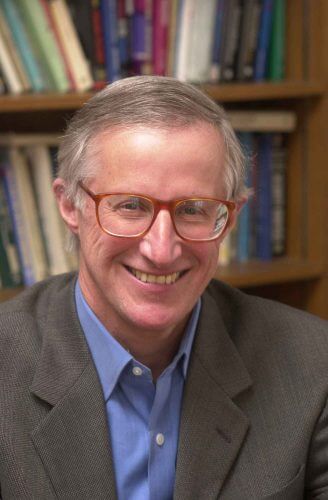Prof. William Nordhaus winning the Nobel Prize for Economics is a very important landmark for the field of environmental economics, but the real benefit to the world, and also to Israel, will come when the ideas that earned him the prize become a reality
Dr. Shiri Zemach Shamir, Angle, Science and Environment News Agency

The news of Prof. William Nordhaus and Prof. Paul Romer winning the Nobel Prize in Economics for 2018 for their research that promoted finding solutions in the field of sustainable economic growth, while referring to finding solutions for the incessant exploitation of nature by man, was for me and for other environmental economics researchers Worldwide great news. But the importance of awarding the prize goes beyond the narrow academic field, because it may have a positive effect on the lives of all of us and everyone who will come after us.
Prof. Nordhaus, one of the world's leading environmental economists, has been involved in this field since the seventies of the last century and is trying to find economic solutions for understanding, internalizing and dealing with climate change. In the first phase of his research agenda, he dealt with two areas: the first is air pollution, recognized by the World Health Organization as a definite carcinogen, which is responsible for the death of approximately 3.7 million people per year around the world (in 2012) and kills over 2,000 people per year in Israel ; And the second is global climate change, caused by emissions of carbon dioxide and additional greenhouse gases into the atmosphere.
Further down the road, Nordhaus tried to estimate the economic cost of climate change and the possible solutions to curb it. To this end, he developed computer models with the help of which he tried to find the most effective solution to deal with climate change. As part of the solution, he recommended taxing carbon emissions in all countries and not acting only within the framework of emission quotas, with the aim of reducing air pollution and its global effects.
Coincidentally or not, the announcement of Nordhaus winning the Nobel came on the day that the latest UN report on climate change was published. According to the latest forecast, the average temperature on Earth, which has so far risen by one degree Celsius compared to the period before the industrial revolution, will cross the 1.5 degree threshold already between 2030 and 2052, if greenhouse gas emissions are not reduced. To this timing should of course also be added the tail wind that US President Donald Trump has given in the past two years to the deniers of climate change, its causes and effects.
"Humanity is betting on the natural environment"
As mentioned, one of the effects of climate change that is becoming clearer thanks to the work of researchers like Nordhaus and others is in the economic field.
As an environmental economist, I believe that the awarding of the prize to one of the top researchers in this relatively new field, which has gained momentum in recent years, is an important symbolic and declarative act, which implies recognition of its importance. In the recent past, the ecosystem and the economic system were seen as two different but related systems, but today the economic system is viewed as a subsystem of the ecosystem. Thus, environmental economics deals with trying to solve and measure existing market failures in the field of environment, ecology and sustainability.
At the same time as his activities in the field of climate change, Nordhaus challenged the accepted national accounting (the one that measures the gross domestic product and the national income, among other things) used in many countries, including Israel, and called for the environmental effects to be included in it as well. Indeed, in various countries they have already begun to estimate green national accounting and green product while integrating environmental elements. In Israel there has not yet been a substantial change in this perception and it is hoped that Nordhaus winning the most prestigious scientific award will be an inspiration in this regard as well.
In an article by Nordhaus from 1993, he wrote that humanity is betting on the natural environment and throwing what it can into the atmosphere. In the Israeli aspect, the conduct of the decision makers (in the areas of transportation, finance, energy and agriculture, among others) does not bode well. Many actions are being carried out in Israel, such as the continued use of polluting coal for energy production and other fossil fuels such as oil and natural gas alongside a slow and limited partial transition to renewable energy sources (2.6 percent of Israel's total energy sources as of the end of 2016) while there is a high probability of not meeting the goals that the state has committed to Israel in the Paris Agreement (17 percent renewable energies by 2030), building roads without trying to find more environmental solutions and accelerated construction at the expense of open spaces, do not take into account the negative effects on the environment and on us as the recipients of its services and products.
As part of my work, I take part in a unique course that combines economics and sustainability and trains the future team of Israeli environmental economists. The work and worldview of Nordhaus and his colleagues form an important pillar in the study material of our students, but their real test will be the degree of success in translating scientific knowledge into action that will positively change the world in which we live.
Dr. Shiri Tzemach Shamir is head of the economics-sustainability department at the School of Sustainability at the Herzliya Interdisciplinary Center.
